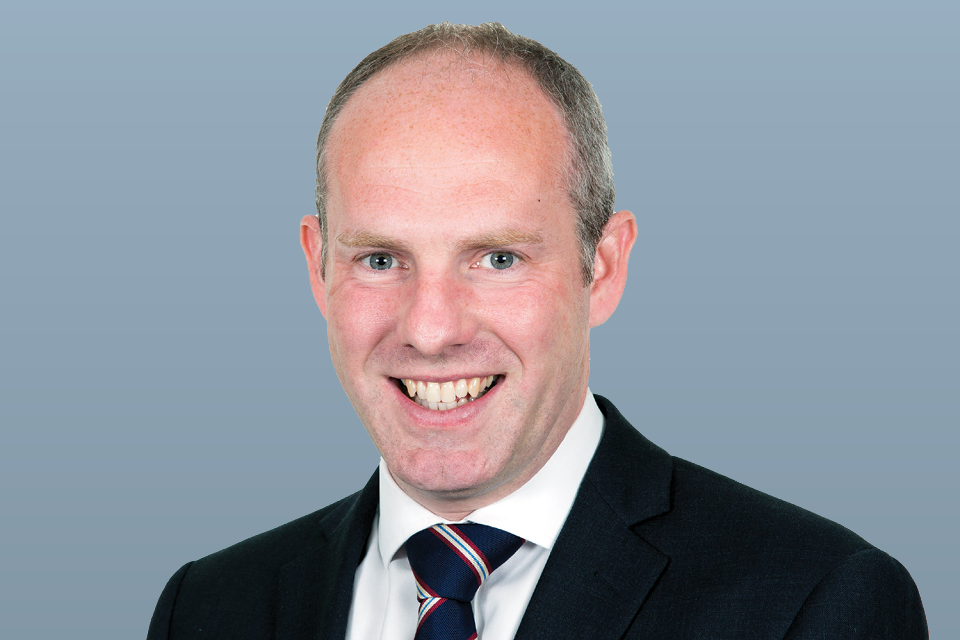Health and wellbeing amongst staff
Speech by Minister for Disabled People Justin Tomlinson at the John Lewis Partnership event to promote health and wellbeing amongst staff.

It’s a pleasure to be here.
My team have been really excited about the work that has been going on, which I will come onto in a minute.
I follow 2 fantastic speeches. Firstly, the former minister [Sarah Newton], who I am just a mere replacement for, with a show of brilliance. And I am really grateful for the huge amount of work that she is continuing to do, particularly in getting cross-party support in this incredibly important area.
Secondly, a brilliant speech about the shining best practice of John Lewis and the work they’ve done; and I am full of admiration for John Lewis. Not just because I spent most of my wedding anniversary on Sunday in the Cheltenham store.
My 10 week old baby Margot insisted on being carried the entire time because she loved all the layouts and the colours.
That aside, what has been set out about investing in staff, supporting staff, making sure those staff feel valued and can be productive and can stay in the workplace is a huge step forward. The key message here is that it is a win-win.
It’s not just good for the staff, though it is obviously good for the staff. It is good for business, it is good for the government and this is a really important area of work for the government.
We have commitments to get more people with disabilities and long term health conditions into the workplace. And we have managed to get 404,000 more disabled people into work in the last 2 years alone – over a million more in the last 6 years – supported by schemes such as disability confident, access to work, more personalised, tailored support through Universal Credit and sharing best practices with businesses.
But that’s only half the challenge. The other half is making sure that people do not crash out of work. We lose an estimated 300,000 people a year through mental health conditions and it is crystal clear that by using early intervention within the workplace it is significantly easier to support someone than once they’ve crashed out to try to rebuild their confidence to get them back into work.
And that’s why as a government we have commissioned this vital consultation [Health is everyone’s business: proposals to reduce ill health-related job loss], and I know many members of this audience have contributed, and we’ve been overwhelmed with really helpful, constructive feedback into that consultation.
Because obviously, we need to increase the capacity of health support workers, not just for organisations like John Lewis who are leading the way, a shining example, but for those small and medium businesses that make up 40% of the private sector jobs. And I know this first hand. Before I came to parliament I ran my own small business. I had staff who had health challenges and by making very, very small changes, more often than not, we were able to keep that person in work, keep a brilliant team member for the business and we benefitted.
Now some of those asks are about increasing capacity, some are about improving signposting. Obviously big organisations like John Lewis have got collective expertise in this area. It’s a given, its embedded into their very culture. But for a lot of those small and medium sized businesses, they don’t have human resources departments. They don’t have personnel departments, they are busily trying to stay a thriving growing small business. Therefore collectively, we must do better: to signpost them, to give them the confidence to seek that additional support.
And it has not been missed – like in most meetings I attend there is a bit of a financial ask about a tax incentive (for supporting employees experiencing mental health issues). Now that is a matter for the Treasury.
But what I would say is key for us, partly through the consultation, partly through the ongoing work that you are doing is to gather that evidence so we can prove to those in treasury that early intervention is a win-win; not just for the business and not just for the employee but also for the treasury who have to pick up the cost once people crash out of work.
And the final thing I would say that shows just how important this is – you may have heard some rumours about a potential forthcoming election. People are campaigning there are hustings going on…
Yes, the Speaker’s election – I don’t know which other one you might have thought about.
And it’s interesting, that as the 10 candidates to become Speaker, people who represent the House of Commons, who are responsible for our welfare as MPs on a day to day basis – one of the big issues they’re campaigning on is to improve this support for us in the workplace. So if we accept this should be a given, then it should be a given for everybody in society.
So I pay tribute to all of you who are doing fantastic things.
Thank you for what you are doing, keep giving me that evidence, it will champion the work that I am pushing on, but more importantly Sarah [Newton] through her amazing cross party work to make sure that this is something, one of those few areas that politicians of all persuasions can get behind because it is a genuine win-win.
Thank you.